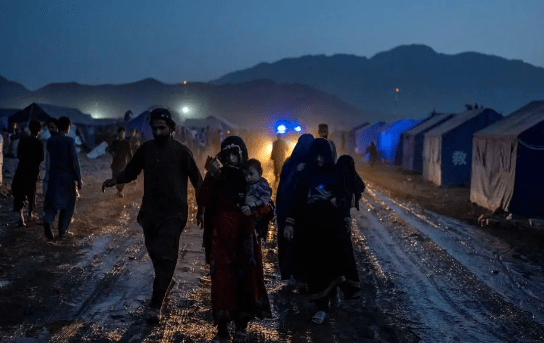
The Taliban have intensified and broadened their crackdown on human rights, particularly the rights of women and girls, in Afghanistan, Human Rights Watch said today in its World Report 2024. Afghanistan’s economic crisis also worsened, with more than 28 million people, almost two-thirds of the population, in need of humanitarian aid. Taliban bans on Afghan women working for the United Nations and international humanitarian organizations have exacerbated the crisis.
“The Taliban have responded to demands from Afghans for rights and accountability with more repression, especially for women and girls,” said Fereshta Abbasi, Afghanistan researcher at Human Rights Watch. “Coordinated support by concerned governments is needed to bring pressure on the Taliban to end abuses while also addressing Afghans’ need for humanitarian aid.”
In the 740-page World Report 2024, its 34th edition, Human Rights Watch reviews human rights practices in more than 100 countries. In her introductory essay, Executive Director Tirana Hassan says that 2023 was a consequential year not only for human rights suppression and wartime atrocities but also for selective government outrage and transactional diplomacy that carried profound costs for the rights of those not in on the deal. But she says there were also signs of hope, showing the possibility of a different path, and calls on governments to consistently uphold their human rights obligations.
The Taliban’s ban on women working with international organizations and in other roles, deprived many Afghan women of their livelihoods. Throughout 2023, Afghanistan remained the only country where women and girls are officially banned from secondary and higher education. The Taliban also banned women from many public spaces, including parks, while policies requiring women to have a male guardian when they travel outside the home severely restricted women’s freedom of movement.
Taliban authorities’ actions during 2023 increasingly enforced these repressive policies. Taliban security forces used excessive force to disperse women’s demonstrations. They arbitrarily arrested some female protesters and detained them, in many cases incommunicado, for weeks. In some cases, these detentions amounted to enforced disappearances. Detained women and their family members taken into custody have been tortured.
Taliban security forces carried out revenge killings and enforced disappearances of former government officials and security force personnel. Officials of the Taliban’s intelligence agency, the General Directorate of Intelligence, and other Taliban security forces, tortured detainees, including by waterboarding them. The Taliban’s ongoing crackdown on civil society involved extensive censorship of the Afghan media and detentions of journalists and activists, particularly women activists. Matiullah Wesa, an education advocate, was detained without charge for seven months.
An unprecedented number of Afghans needed humanitarian assistance in 2023, including more than three million children experiencing acute malnutrition. The loss of millions of jobs after the August 2021 Taliban takeover, the deprivation of most foreign aid, the effects of foreign sanctions, and a multi-year drought were the principal reasons behind deepening poverty.
The ban on Afghan women employees constrained the capacity of aid groups to assess and monitor the humanitarian needs of women and girls, contributing to higher rates of inadequate nutrition among women-headed households.
The Islamic State of Khorasan Province (ISKP), the Islamic State’s (ISIS) affiliate in Afghanistan, continued to carry out attacks that targeted civilians, particularly in Hazara and Shia communities.







